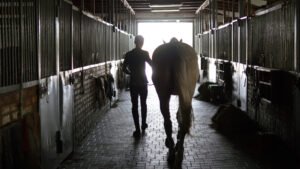
Know Your Rights Under the Stable Holder Lien Act
Owning a horse is a big responsibility, since it may involve boarding the horse at a stable if it is not on your own property. Unfortunately, disputes can occur between stable management companies that board animals and horse owners when their boarding fees are not paid. In general, a horse owner signs an agreement (written or oral) that establishes the terms, conditions, rules, and provisions regarding the boarding or stabling of a horse. The law requires stable owners or managers to give boarded horses “reasonable care.” However, if horse owners fail to pay mounting fees, this can lead to legal action. Under Illinois law, “stablekeepers and any persons shall have a lien upon the horses, harnesses, and carriages kept by them for the charges due for the keeping and expenses bestowed upon them at the request of the owner.” This is also known as the Illinois Innkeepers Lien Act, and it provides provisions for those who board horses that their rights are superior in certain situations.
What Does a Lien Do?
There is no doubt that the COVID-19 pandemic has affected our everyday lives. Many people in all types of industries have been temporarily furloughed or have lost their jobs completely. For horse owners, a change or reduction in income can make it difficult to keep up with their boarding fees.
If a horse owner is delinquent on boarding fees, the boarding barn can file a claim of lien in the county court. Once the claim has been filed, the boarder or stable should post a notice on the horse’s stall door stating that a lien has been filed and that the animal is being held per the Innkeeper’s Lien Act. The stable must give the horse owner 30 days written notice that the horse will be auctioned off to pay the arrears plus any other expenses.
In addition, the stable owner must place a Notice of Sale in the local newspaper for three consecutive weeks prior to the sale. The Sale of Unclaimed Property Act includes the rules for how the sale should proceed, plus details such as the lien amount and a minimum bid.
In an effort to mitigate his or her damages, the horse owner could sell the horse to cover the balance due, plus the costs associated with the lien and sale. In these uncertain times, it may not make sense financially to keep the horse unless the stable is willing to forgive the debt in exchange for the horse. However, if the horse owner cannot pay the total due, the stable may file a small claims action against the owner for the amount still owed. In these situations, it is important to have a skilled attorney to help the horse owner navigate the legal proceedings and avoid further trouble.
Contact a McHenry County Civil Litigation Lawyer
Having a horse can be a wonderful experience, one that you take very seriously. As a horse owner, you want the best care for your animal, which may include finding the best place to board it. Fees can quickly add up for boarding, and you may risk losing your horse if the stable has a lien on it. The qualified and compassionate Woodstock real property litigation attorneys at Prime Law Group can help you with this unique type of legal matter. Call us today at 815-338-2040 to arrange a private consultation.
Date: October 17, 2020
Source:
https://www.ilga.gov/legislation/ilcs/ilcs3.asp?ActID=2250&ChapterID=63






